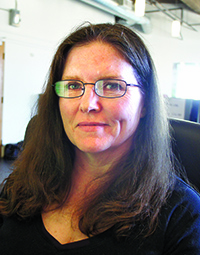After graduating from a career accelerator, longtime embedded technology engineer Magee Mooney knew she would face some challenges as an older developer trying to reinvent herself in the market. She didn’t realize how difficult it would be until she sat in her first interview with a potential employer who said, “Don’t take this the wrong way, but aren’t you kind of… older?”
It’s apparent (but not a surprise) to people like Mooney that ageism is alive and well in the software development industry. The world of job interviews for these experienced (or older) developers is a world of subtle discrimination and having to explain why their skill set is still valuable, despite it being labeled as obsolete or outdated, she said.
(Related: Fighting for inclusivity in the workplace)
In order to navigate the changing landscape and get older developers to continue their own career paths, companies today should consider increasing their learning opportunities so all developers can have a professional space for development. At the same time, older developers can shake off their cobwebs by using boot camps and other advanced resources to stay on top of industry trends and technologies.
Navigating the industry
Like Mooney experienced firsthand, older developers may face challenges when trying to find new positions or further their development careers. Some of this stems from the fact that larger tech companies tend to foster the growth of their employees, who are predominantly young and male, according to a PayScale report, which found that these companies have a median employee age of 30 or younger.
Not all developers have been nurtured in the bubble that is Silicon Valley, but many young ones learn and develop new skills there (think Google’s free classes and tech talks, Apple’s comprehensive training, or Facebook’s professional development classes). This has prompted working developers to ask questions in forums like Quora and Hacker News. “What happens to older developers?” reads one post. “What does a mid-late career as a software developer look like?” asks another.
Talk to developers around 37 and up and the strategies for competing with the younger crowd include getting Botox, constantly coding, and practicing new tech lingo while commuting. Silicon Valley programmer Andrea Rodriguez discussed her strategies for staying young and hirable to Bloomberg, saying she switched all her suits with bright colored jackets and scoured Reddit to keep up with what her younger colleagues were wearing, saying and doing.
Abhinav Asthana, CEO of API building and testing company Postman, hasn’t had to resort to such extreme measures—yet. His programming experience was self-taught, and he came into the industry with a six-month internship at the Yahoo R&D center in Bangalore, India. A year later he cofounded a startup called TeliportMe. Later, in October 2014, he started Postman with two friends.
Asthana—who is approaching his early 30s—noticed that more job opportunities appear to open up at the top of the stack. What’s happening in the industry, he says, is that the more valuable companies are being creative there, and the focus has shifted to APIs, building applications for mobile and for the enterprise.
“I think what happens in this environment is the newer developers go for the opportunities at the top of the stack, and the experienced developers that are more specialized, they are working on things below the stack,” said Asthana.
He added that he has seen companies quickly hire young developers right from college because they believe they will be able to work days and nights, getting a product finalized and into the market faster. At Postman, he said hiring older developers allowed them to produce good quality software with great architecture.
“[Older developers] have seen a lot and have worked with frameworks and they know what makes good software,” said Asthana. “The software lasts for a long time and the code is good, and that is their advantage.”
Datalink’s (an Insight company) director of software solutions, Dennis Vickers, said another difference is how older developers approach software development. While younger developers are digitally native and have grown up immersed in the technological era, older developers focus on creating code that is maintainable, supportable and of good quality.
“I don’t want to say the younger developers aren’t writing good code; they’re certainly writing good code,” said Vickers. “The longevity of that code is not as important as it was to the older developers, so we took longer to write code, but we expected it to last for 10 to 15 years.”
Russell Ure, CEO of Klashwerks, said he has a broad perspective in how software development has evolved over the years. He started off as an engineer, a developer that designed systems that were both hardware- and software-based. In later roles, he developed larger and larger systems, which got him into a development-management system, until he became CEO of his connection technology startup.
Ageism is everywhere and in almost every industry, said Ure. But as someone who hires developers and engineers, he said his concern is not that a developer coming in with 17 years of experience is too old; the concern is that the person is too inflexible.
“I think a lot of people concluded that a 50-year-old developer is over the hill and can’t learn,” said Ure. “I don’t know where that has come from. It’s a bad thing in society that people think that people can’t learn once they get to a certain age. There is no evidence that people stop learning at 50 or 70 years old.”
Ure said the notion that older developers cannot learn or keep up with new technologies could stem from “the artifact of our society” where youth dominates today’s culture. “I think software developers are suffering from this, and it’s unfortunate,” he said. “It’s a misunderstanding, I think, of how our brains work.”
Ageism is part of problem, but Ure said the reason some developers end up losing their edge in the business is not because of their age, but because of their circumstances.
He added that developers have to work at a high level of commitment and be prepared to put in a lot of extra work to help the business and the product, especially if that business wants to be a winner in the market. For younger developers leaving college, this can be a “seamless transition,” he said. But it can be pretty difficult to keep up the learning and workload when trying to live a life outside work, with family and friends.
Those developers who are naturally trying to move into an environment that gives them more time, space and flexibility might end up working for an organization that has a slowly evolving product or system, said Ure.
This issue relates closely to women in technology, said Mooney, since many women who have kids take leave to become the primary caregivers, and they end up not going back to development.
“It’s a challenge for women who step out of the industry; it moves so quickly, and their skills can become stale,” she said.
Keeping up with the Valley
Despite the challenges older developers and engineers face, the tech industry continues to grow. (Modis, a global IT and engineering staffing agency, says it will grow by 12% by 2024. Web development is forecasted to continue to grow by 27% in 2024, with IT security and analysis jobs growing by 18% and 21%.)
With these trends in mind, developers who have been in the industry for a long time can focus on new and emerging technologies to stay on par with younger developers, said Postman’s Asthana. Core programming concepts haven’t changed, he said, but there are many new frameworks and stacks that can be a bit daunting.
Aleksandr Nechaev, JavaScript technical lead at PDFfiller, said that to stay in-demand, older developers should keep up with trends and “keep your hand on the pulse of whatever is popular now,” which, in his opinion, is JavaScript.
“For a middle developer, it’s okay to be highly qualified in one field,” he said. “When you start, you should definitely get as good as possible in one area, stay focused on one technology or one language. If you want to become a senior [developer], a team lead or a technical lead, you have to become a universal soldier, because when you pass a middle level, you cannot simply execute somebody’s task.”
Nechaev said senior-level developers will start to feel their responsibility, and they will begin to think about their staff beyond “your part of code, like compatibility, architecture, and how it will be deployed, or how it will resist a load.” He added that IT conferences are a must—attended in-person instead of online.
“You have to be there and communicate,” said Nechaev. “That’s the biggest value, and that’s where you have a chance to learn more in a day than you’ve tried over a year.”
Klashwerks’ Ure recommends developers keep up with things like robotics or automation because there is “no field that is going to be untouched by these technologies,” whether it’s IBM Watson, TensorFlow, smart controllers, or LIDAR sensors that enable self-driving technologies. Developers should learn what is working in these sectors and why.
“Most companies will only train people on technologies that help their business goals, so if the developer wants to keep themselves marketable and relevant, they will have to take the initiative,” said Ure.
Mooney found herself in the job market without those fresh skills, and she only had a foundation and expertise in things that companies were just not interested in, she said. She didn’t want to be the “expert in that obscure thing,” so she signed up for the Hack Reactor program in 2013, which helps students of all ages reinvent their careers in 12 weeks. Now, she is one of Hack Reactor’s lead technical mentors in the Bay Area.
Hack Reactor introduced Mooney to a “whole new world of coding,” and she was able to catch up to other developers who are part of the open-source, full-stack, Silicon Valley world, she said. Just like Hack Reactor, other boot camps and online training companies welcome industry veterans, such as Coding Dojo, which has both onsite and online boot camps, or Codecademy, which gives developers free coding courses online.
Keeping developers in development
Often developers who have been in the business for more than 10 years will find themselves in a management role, and part of this has to do with them having more “soft skills” experience as compared to younger developers, according to Mooney. She said most younger developers do not understand how to communicate and manage a team, which is why the older developers eventually find themselves making that transition.
The way to get older developers to stay in programming roles lies in the hands of the company, which is why Postman’s Asthana suggests getting developers to work on different projects all the time so they are not siloed. Companies might also want to consider allocating resources for books, conferences or other ways for developers to learn new skills or participate in discussions.
Instead of just shooting for management roles when they get older, developers can aim for jobs that let them specialize in a particular tech industry or a specialized stack, framework or language.
“Creating a niche for themselves while having a good general grasp of newer technologies and trends will help developers who do not want to move up into management,” said Asthana. “Also, older developers can focus on mentoring and building people skills; building a leader in a group does not require a traditional MBA, and often companies like to promote people within their ranks.”
Datalink’s Vickers said that his company gives developers an opportunity during their normal workweek to experiment with new technologies, since the company focuses on developing software for their clients.
“We recognize that we have to allocate time for the developers to work on things that are not necessarily billable to our clients but that are for developing skills, which are designed to help our customers in the future so we can be a few steps ahead,” said Vickers. He also added that Datalink has a mentorship program where both senior and junior developers put in a team, working together to stay up to date with the latest frameworks and technologies that are critical to the business.
Not every company is equipped with the funding for conferences or extra training, and Klashwerks’ Ure said it’s the developers who have the responsibility to stay on top of changes and “not expect companies to rescue them.” Developers should also “be aware and take proactive action to protect their future,” he added, since people who become expensive can become vulnerable in larger corporations—especially older developers.
“Their value is based on what they can offer, being placed into a position working on a system that is mature should be seen as a big career red flag,” said Ure.
Starting the coding journey at 56
VM Vaughn is learning to code at 56 years old.
He is starting his developer journey with Free Code Camp, the open-source community that helps people learn to code. While he is just now diving deep into programming, he hasn’t been a stranger to the changing world of technology.
Vaughn said he has worked in IT for the last 37 years of his life, both on the vendor side and for traditional IT departments in companies. He’s secured various technical, consulting and management roles during this time, and there was one year when he programmed for a vendor (Storage Technology Corporation, he said). He did maintenance programing for software that ran on an IBM mainframe, where he had to program in an assembly language.
Although Vaughn loved it, he said he moved back to a previous IT management position to make more money. Finally, at 56, he decided no more, and answered the call for something that he loves doing.
His determination to become a developer means embracing what he calls his “critical inner self,” or CIS, which often asks him why he is doing this now at his age.
Vaughn wrote in a Free Code Camp blog post that even if he works at a snail’s pace and it takes him four years to finish Free Code Camp’s one-year curriculum, that puts him at 60 years old looking for a job as a junior developer.
“Here’s a thought for you,” he wrote. “My paycheck is less today than it was five years ago. And that’s with five more years of experience. There’s no guarantee that the job I have now will last… At my age, I very well may have to accept entry-level wages doing something…anything.”
Despite Silicon Valley tech companies appearing to sway toward hiring 30-somethings, Vaughn said by 2020 there will be a million more programming jobs than people trained to fill them. Not all of those jobs will be in the “big four” tech companies, he said, and if he wanted to try working for those companies, he has “a lot to overcome.”
Right now, Vaughn sets himself apart with a résumé that shows he never “settled in,” and one that shows he worked with people all over the world, taking growth opportunities along the way.
He said he is able to adapt and knows that a company is in business to serve clients and make money, but this doesn’t change the fact that there is still some age discrimination in the industry.
“I think that’s the case in general for businesses when they hire,” said Vaughn. “In general, I think older professionals (or newbies) have a better chance of offering their services as freelance.”
For Vaughn, he never expected his companies to help him with professional development; it’s his responsibility, he said.
“I don’t expect to be catered to,” he said. “It’s up to me to get the job and do the job. My advice to someone who is older and wants to do something or live differently is to simply get started.”
And to his pessimistic critical self that asks him, “What if you don’t get a 9-to-5 paycheck after Free Code Camp?” Vaughn says, “So what?”
“To put it another way, I can learn how to build an idea. To put it out there for people to use. To offer value. To make money. With or without a 9-to-5 J.O.B.,” he said.







